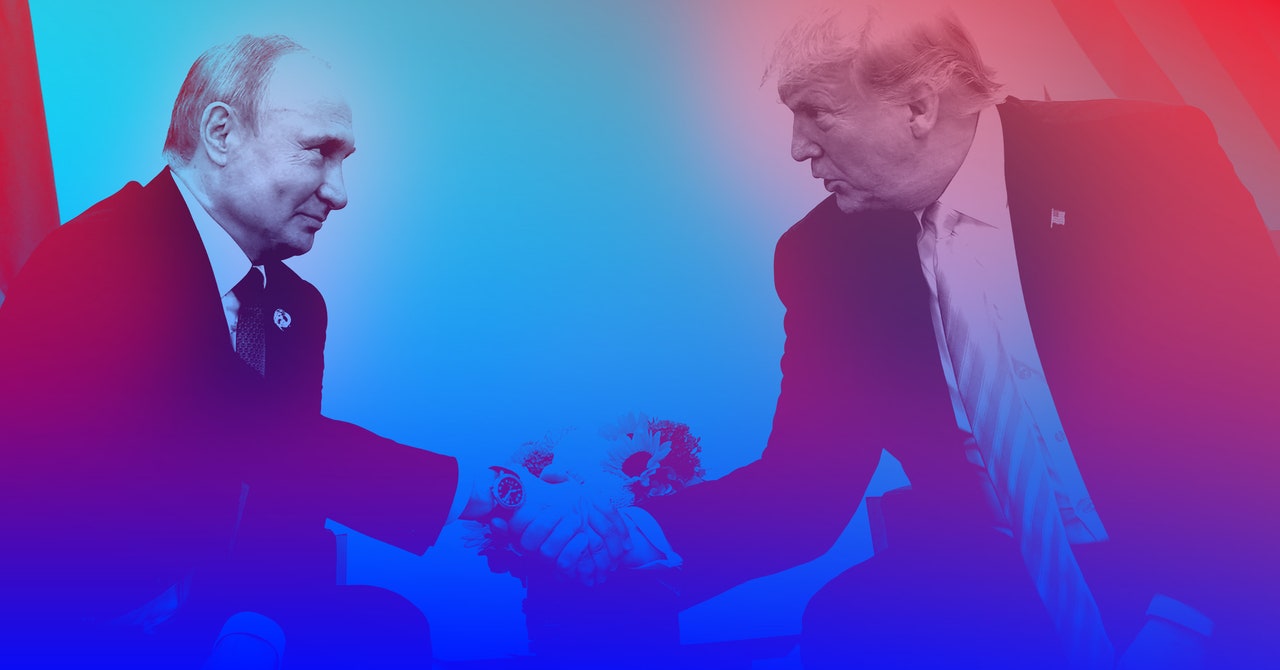As the 2024 US presidential election comes to a close, and with Donald Trump on the ballot once again, Russian actors are spreading disinformation with unprecedented and alarming intensity—and US officials say that the Kremlin’s efforts to undermine confidence in the election and foment unrest are likely to continue into January.
Russian disinformation operations have had a prominent presence in United States elections since the Kremlin’s sea-changing influence campaign during the 2016 presidential race between Hillary Clinton and Trump. But with so much scrutiny and investigation into that operation’s mechanics and impact—including the use of hack-and-leak tactics against the Democratic National Committee, Clinton campaign, and other targets—Russia was less technically aggressive and more focused on influence operations in the midterms and 2020 presidential election. That momentary respite is now over.
In calls with reporters on Monday night and Tuesday, as well as in public statements, US intelligence and law enforcement officials working on election security warned repeatedly that foreign influence actors including Iran, but “particularly Russia,” are ramping up their activity with an “increasing volume of inauthentic content online.” And while officials say they haven’t detected cyberattacks beyond floods of junk traffic, or DDoS attacks, attempting to knock election-related sites offline, Russian activity has become increasingly menacing.
On Tuesday morning, for example, Georgia secretary of state Brad Raffensperger attributed multiple bomb threats against two Georgia polling places to Russia. The threats were deemed non-credible, but they briefly disrupted voting at the two poll sites. The FBI added later on Tuesday that poll sites in “several states” faced non-credible bomb threats that appeared to “originate from Russian email domains.”
“It is a greater scope and scale of foreign influence operations we have seen in 2024 than in prior cycles, and yes, Russia presents, in terms of our adversaries, the greatest degree of capability and sophistication,” Cait Conley, senior adviser to the director of the Cybersecurity and Infrastructure Security Agency (CISA), told reporters in a call on Tuesday afternoon. “Overall, I think the range of tactics we are seeing being employed, and the level of sophistication, is greater than prior cycles.”
In a joint statement on Monday evening, the Office of the Director of National Intelligence, CISA, and the FBI emphasized that “Russia is the most active threat” to the US election. “Influence actors linked to Russia in particular are manufacturing videos and creating fake articles to undermine the legitimacy of the election, instill fear in voters regarding the election process, and suggest Americans are using violence against each other due to political preferences,” they wrote.
The agencies cited some specific examples of content from Russian influence campaigns. One was a fake interview with someone purporting to be a former aide to Arizona secretary of state Adrian Fontes, claiming a vast election fraud campaign involving the manufacture of fake overseas ballots. Another involved alleged Russian influence actors amplifying an article that falsely claimed US officials in swing states were committing election fraud using a variety of tactics, including ballot stuffing and cyberattacks.
A video claiming to show evidence of fraud in Georgia was also linked to “Russian influence actors” in late September. Last month, experts also credited Russia-aligned propaganda network Storm-1516 with amplifying baseless claims that Minnesota governor and vice presidential candidate Tim Walz previously assaulted one of his former students.

